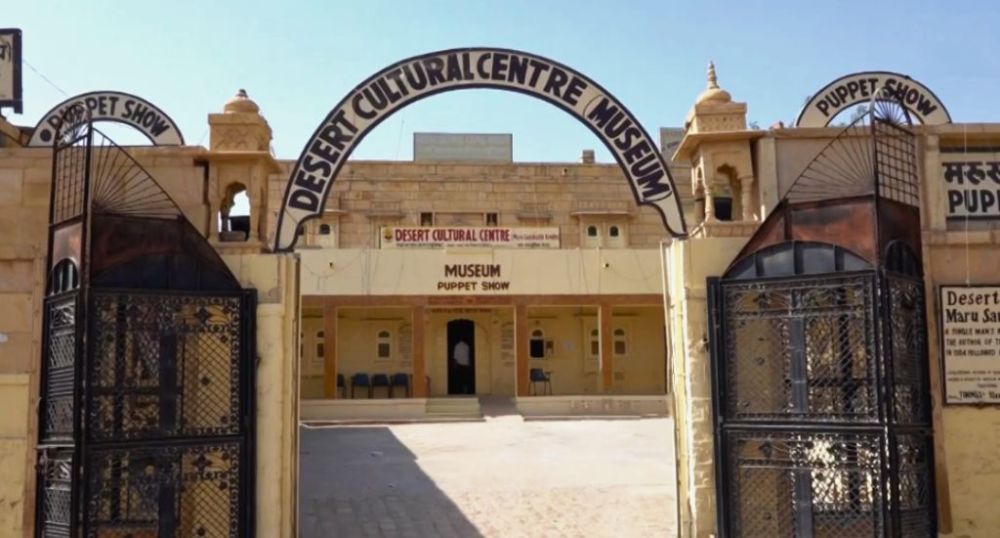

The Desert Culture Centre & Museum in Jaisalmer is a repository of the rich cultural heritage and history of the desert region of Rajasthan, India. Established with the aim of preserving and showcasing the traditional culture of the region, it plays a significant role in the historical context of Jaisalmer's tourism.
The inception of the Desert Culture Centre & Museum was born out of a need to conserve and promote the local art, music, heritage, and customs of the Thar Desert. Since its opening to the public, it has become an essential stop for tourists who are interested in understanding the lifestyle that has thrived in this arid region for centuries.
Located near the Jaisalmer Fort, the museum was founded by N.K. Sharma, a notable scholar of folk art, in the 20th century. Sharma’s aim was to protect and celebrate the unique cultural practices of Jaisalmer and the surrounding desert areas, providing an insightful backdrop for the thousands of tourists who visit this historic city.
Tourists who visit the Desert Culture Centre & Museum are welcomed with an array of colorful displays that include traditional Rajasthani textiles, utensils, instruments, weapons, and fossils. Puppets, which are a prominent part of local lore and entertainment, also feature predominantly within exhibitions.
One unique aspect of the museum that draws attention is the demonstration of traditional Rajasthani Kalbelia dance and folk music, offering visitors a deeply engaging cultural experience. Additionally, the museum boasts a rare collection of ancient scripts and coins, providing an educational aspect to the visit for history buffs.
In recent years, the museum has seen a trend in increased global interest as travel has become more accessible and the popularity of experiential tourism has risen. Travelers seek out authentic cultural interactions, and institutions like the Desert Culture Centre & Museum serve as gateways to these experiences.
The city of Jaisalmer itself has become more tourist-friendly, with improvements in infrastructure, the emergence of boutique hotels, and the hosting of cultural festivals such as the Jaisalmer Desert Festival. These developments have worked in tandem with the museum's offerings, ensuring a steady growth in tourist numbers year on year.
Key to the museum’s prominence in Jaisalmer’s tourism scene is its commitment to preserving the city’s past. By continuing to provide educational programs and maintaining its eclectic collection, the museum plays a crucial role in informing both locals and tourists about the area's traditions and history.
The Desert Culture Centre & Museum remains an important ambassador for Rajasthani culture, drawing in those keen to learn about the region's extensive heritage. It is a reflection of Jaisalmer’s broader tourism ethos, which is firmly rooted in the celebration of its desert lineage.
Today, in Jaisalmer, the museum not only stands as an attraction in itself but also contributes to the multi-faceted allure of the city, reinforcing its position on the global tourism map.
For those planning a visit, the Desert Culture Centre & Museum is open daily and is known for being most vibrant during the tourist season from October to March. Visitors are advised to check for any seasonal timings and available guided tours to make the most of their trip to this captivating center of heritage in the heart of the Thar Desert.